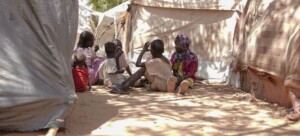Doctors: Diarrhoea cases in Sudan number in the hundreds
The committee of Sudanese doctors reported that more than 300 people have been infected with acute watery diarrhoea in Red Sea, Khartoum and El Gezira – suspecting them to be cholera cases.
The Central Committee of Sudanese Doctors reported that more than 300 people have been infected with acute watery diarrhoea in the states Red Sea, Khartoum and El Gezira during the past few days. The doctors suspect the infections to be cholera.
In Red Sea, more than 160 people are infected, including students from the Faculty of Education. Yesterday Radio Dabanga reported that eight people have died from the disease in Jebeit. A large number of cases has been registered in Sawakin as well, the doctors' committee said in its report.
Red Sea is short of intravenous fluids and lifesaving medicines to save the patients. So far the State and Federal Ministers of Health have denied that there are any cases of cholera in the states.
In Khartoum North, Ahmed Gassim hospital in Bahri has received more than 51 children infected with acute watery diarrhoea. They all go to school in Ed Babikir district of eastern Nile, which accommodates approximately 1,500 children. Initial tests have revealed those as cholera cases, according to the central committee.
On Friday, Alban Jadeed hospital received 61 children who suffer from acute diarrhoea. They are aged between 5 to 18 years, mostly from east of the Nile.
The doctors' report said that more than three patients died, and more than 20 patients are infected in El Maseed on Saturday. The report added that 25 cases of cholera-like symptoms have been admitted to EL Tamayos hospital in Khartoum North.
Medicine shortage
A pharmacist in Khartoum told Radio Dabanga that people have complained about the shortages of malaria medicines, drops against blindness, and medicines that reduce cholesterol. The majority of pharmaceutical medicines “are almost non-existent in Khartoum's pharmacies”, he said. “Some patients are forced to buy them from Cairo, especially blindness drops and medicines for sight operations.”
Meanwhile the Endemic Diseases Institute at the University of Khartoum has warned of the emergence of new cases of malaria in many parts of Khartoum state.











 and then
and then